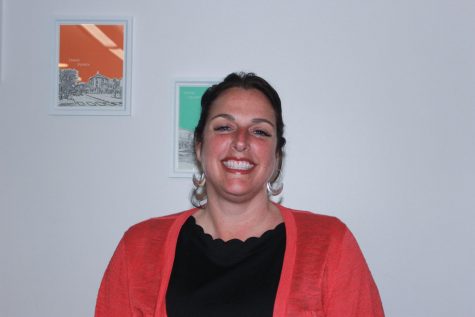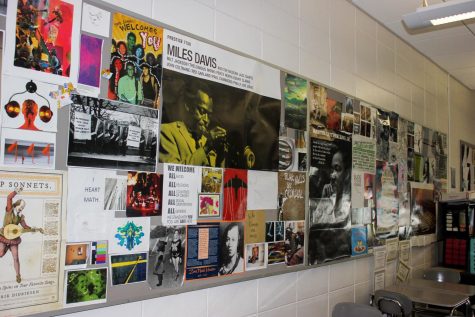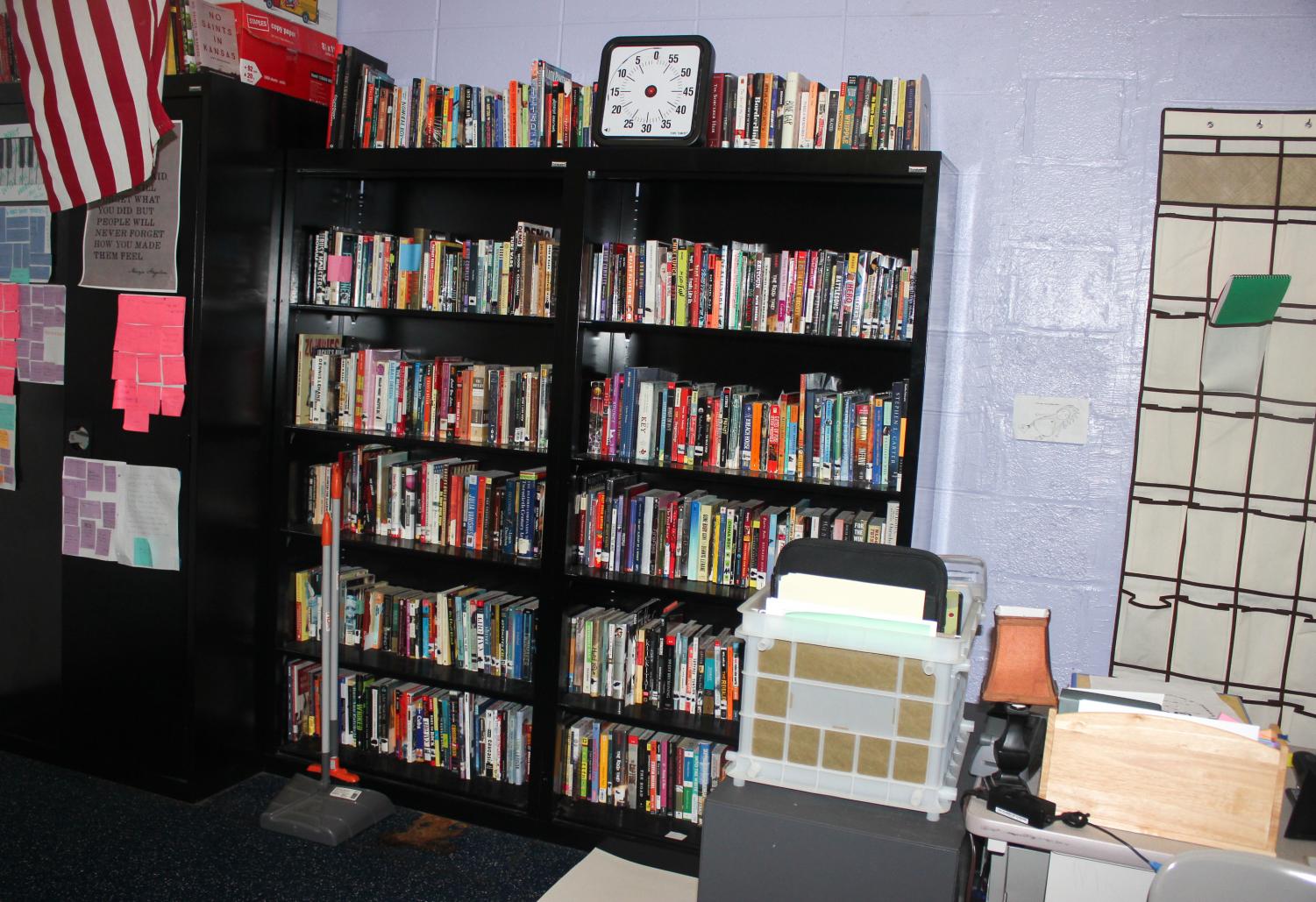Level Up Effort at CRLS Meets Some Parental Resistance
June 12, 2019
It is a well-known phenomenon at CRLS that if you walk into a class, you can tell what level it is just by looking at the students’ faces. While CRLS is a racially and ethnically diverse school, students of color have often been concentrated in so-called College Prep (CP) classes, while the more challenging Honors (HN) and Advanced Placement (AP) classes that are in fact more instrumental in setting students on the path to higher education have been overwhelmingly made up of white and affluent students. In many classes, this de facto segregation is still present. However, last year, CRLS adopted the Level Up program in 9th grade English Language Arts (ELA) classes—creating only HN-level classes and making them fully heterogeneous—to try to eliminate this segregation and live up to its motto of opportunity, diversity, and respect. This year, CRLS expanded this model to World History for incoming freshman and as well as to sophomore ELA classes.
This is not the first time that CRLS has eliminated tracking. In the early 2000s, because of similar concerns about equity and opportunity, the school detracked all classes for 9th and 10th graders. But after being put on probation from the state for unsatisfactory results and after middle-class parents began moving out of the city or putting their children in private schools, CRLS went back to leveled classes.
Preliminary Reactions
Though it is too early to evaluate the broader success of the new Level Up initiative, it has garnered starkly different reactions from students, parents, and teachers. Students that the Register Forum talked to on the whole were positive about the program. “De-leveling has forced kids to push themselves, when before students would take the easy way out and take CP, students are now forced to take an extra step in their academic learning,” said sophomore Ramita Laoboonchai. Others students pointed to the benefit of having exposure to different ideas in the classroom, particularly in Leveled Up history classes. Pouya Sadeghpour ’21 noted that “Students can learn so much more from students with different backgrounds than from a teacher, and the discussions students have can lead to totally new perspectives.”
Teachers and administrators are also pleased with the program. “There isn’t the sense of separation between students anymore,” Erik Scott, a 10th grade English teacher told the Register Forum. “I think students are more comfortable with each other and have a sense of working together … there is a lot more self-confidence amongst all students in the classroom because they don’t have that sense of ‘I’m not in that class with everybody else.’” Jennifer Hamilton, the dean of the English department at CRLS, pointed to a moment she witnessed in a Leveled Up 9th grade English class at the beginning of the year as evidence of the program’s success. In this class, she saw two different students present “life maps” of important experiences that had shaped their lives: one student discussed how she loved to travel to London and spoke four different languages, and the student who presented immediately after her told the class about how he had to work outside of class to provide for his family and that he had been homeless for most of his life. “At that moment, there was a level of building trust and building community” that didn’t exist before Level Up, said Ms. Hamilton.
Mary-Ann Matyas, a parent of a CRLS sophomore, told the Register Forum that her son has had a very positive experience with Level Up and that she is glad that the school is moving towards a more heterogeneous model. “I feel that the opportunity of challenging everyone, and maybe engaging some of those kids that felt that they weren’t engaged, far outweighs any potential for, let’s say, [her son], to not feel like he’s in the most rigorous class,” she said.

Ms. Hamilton is the dean of the English department at CRLS.
Another parent, Sabrina Birner, whose son is a freshman, told the Register Forum, “The level of teaching he has received [in his Leveled Up classes] has been to a very high standard. He started out doing well, and his teacher pushed him to excel.” She noted that her son has valued the diversity of perspectives in his classes and that “Level Up helps ensure that CRLS’ motto is put into practice. As a parent, I am proud to send my son to a school that offers Level Up.”
Although parents like Matyas and Birner see the advantages to deleveling English and history classes, there are also many parents who have concerns about the initiative, especially about 9th grade English classes and in particular the curriculum in these classes. Some parents say their children are bored and frustrated in their freshman English classes and feel as though the curriculum isn’t rigorous.
One parent of a CRLS sophomore, who asked to be quoted anonymously, said that she has liked that students from all different backgrounds are in the same classes together, but feels as though the curriculum “is not an Honors curriculum and I’m not even convinced it’s a 9th grade curriculum.” Another parent of a CRLS freshman who also wished to be quoted anonymously echoed this concern: “I have found the lack of work that [my daughter has] had to do, and the lack of rigor, and the lack of being taught how to write and read, to be absolutely appalling. I would call it Level Down, I wouldn’t call it Level Up.”
These parents had particular concerns about two of the books that the freshmen read: Bronx Masquerade by African American author Nikki Grimes and Malcolm X: A Graphic Biography by white author Andy Helfer. They are uneasy about the fact that Bronx Masquerade has what is referred to as a “High-Low” lexile score—it is a young adult book written at an elementary school reading level—and Malcolm X: A Graphic Biography is a graphic novel.
CRLS teachers of Leveled Up classes in both 9th and 10th grade and the English and history departments have said they have heard similar concerns about rigor and the selection of texts from parents, despite the fact that there are resources in place to support teachers in differentiated instruction. Furthermore, every Leveled Up classroom has two teachers, one who is an expert in the content and another who is a certified special educator. Jalyn Evans-Williams, a first-year 9th grade English teacher, told the Register Forum that while some of her students’ parents had a very positive reaction to her class and have a “collaborative spirit,” “many parents took a critical stance on the curriculum.” She said parents had particular concerns about the Malcolm X book and Bronx Masquerade but not the other two books that are part of the curriculum, Romeo and Juliet and Lord of the Flies. In an email to the Register Forum, Ms. Evans-Williams wrote, “I welcome parents to take a critical stance on the level of rigor in our curriculum in order to hold teachers accountable, and I charge parents to recognize that nontraditional literary works written by diverse authors contain rigorous instructional components that cannot be captured with a lexile score alone.”
Kanku Kabongo, a 9th grade World History teacher, said that she has had “a handful of parents who have expressed concern about who they believe is in the room with their children.” She said that some “parents are assuming that there are more kids with behavioral challenges in their kids’ classes.” However, she noted that for the most part, she isn’t hearing the students themselves complaining any more than they ever did.
Many of these teachers noted that they felt like the concerns were more prevalent in 9th grade classes than in 10th grade classes. Jennifer Sarmiento, who teaches 10th grade English among other courses, said that she thinks that the “baggage” that families can bring to heterogeneous classrooms has impacted the 9th grade more than the 10th grade. By sophomore year, she said, parents are either “getting over” their concerns or moving their kids to a different school.
In addition, Tanya Milner, the dean of the CRLS History Department, noted that she thinks she receives fewer concerns from parents than the English department does, something she attributes to families thinking that English is “more crucial to their students’ development” and that it may seem easier for families to try to assess the rigor of English courses because there are more quantifiable measures, like the number of books and papers assigned.
In response to parent complaints, the Cambridge School Committee has ordered an internal audit to evaluate the progress of the Level Up program that will be released in August. But many teachers feel the audit is an attack on their styles of teaching. Ms. Hamilton said, “It is insulting to teachers that are now being asked to justify what they are doing in the class through an internal audit mandated by the School Committee as a result of parent complaints in lieu of using that time to make improvements based on their experiences as highly qualified teachers.”
Questions of Implicit Bias
Some teachers and administrators at the school believe that some of these parent concerns could be the result of implicit bias. Ms. Hamilton said that parent concerns about rigor in English classes are not uncommon, but it wasn’t until Level Up that “there was so much public focus on this issue.” The curriculum has changed only minimally since before Level Up, yet parents are now complaining about behavioral problems taking away from instructional time in addition to a perceived lack of rigor, and the only major change in the classroom that has occurred is that there are now more black and brown students in HN classes. These facts lead Ms. Hamilton to believe that “The complaints, to me, have come down to implicit bias.” A 9th grade teacher who asked to remain anonymous agrees with Ms. Hamilton that implicit bias could be fueling some parent concerns about both Leveled Up English and history classes: “We have more heterogeneous classes and more complaints about behaviorally challenged students. Those two things seem to suggest that if you’re complaining about behaviorally challenged kids, you think that the behaviorally challenged kids are the kids of color that are now in your children’s classes.”
Three out of the four texts that are part of the 9th grade English curriculum—Bronx Masquerade, Romeo and Juliet, and Lord of the Flies—were part of the curriculum before Level Up, and only one, Malcolm X: A Graphic Biography, was added when the program began. But Ms. Hamilton actually thinks that the course is more rigorous now than it was before Level Up. “In my opinion, some parents have a different definition of rigor than the team, district and other stakeholders do,” she wrote in an email to the Register Forum. “For a lot of white families, rigor means harder books, more books, more papers, which isn’t creating a whole child,” she explained. “Especially in our world today, understanding other people is just as important as writing that long essay, or reading that hard book.”
Ms. Kabongo believes that the World History curriculum has also not become less rigorous with Level Up. “If you ask my students, they will not say ‘oh, it’s been watered down, it’s the easiest thing.’ Not one person has ever said that my class is the easiest class they’ve ever taken and also done exemplary [work] in the class.”
Kim Motylewski, another parent of a CRLS sophomore, has a son who graduated in 2017 and who did not go through the Level Up program. In an email to the Register Forum, Motylewski compared her two children’s experiences in freshman English, noting, “I would agree with the teachers, the content hasn’t changed much between the old HN English 9 and the new Level Up English 9. However, in both cases there was a problem of inadequate engagement and challenge.”

Inside 9th grade English teacher Mr. Kreuser’s classroom.
Teachers and administrators also believe that implicit bias about teachers of color who teach Leveled Up classes could be playing a role in parent perceptions of the program. “The number of complaints that come to me around lack of rigor and disorganization are always pointed towards educators of color,” said Ms. Hamilton. Latrice Bates, another 9th grade English teacher, also attributes some complaints about Level Up to the fact that she is black. “With me, because I am black, and I am young and I am a female, I feel like I do get more pushback,” she said. “I notice with my white colleagues, it’s not to the point where they have to have meetings about it and the boss has to come out, and with me it’s been like that.”
10th grade English teacher Ms. Sarmiento, who is white, said she feels as though parents’ concerns about Level Up aren’t resolved as quickly for her colleagues of color as they are for her. “It’s kind of mystifying because the 9th grade has a very specific curriculum that everyone completes, and so the idea that one teacher can be questioned over another when they are doing the same thing already indicates some sort of implicit bias that people are going in with,” she said.
9th grade English teacher Andrew Kreuser, who is also white, agrees with Ms. Sarmiento. “I have not gotten as much pushback or as many questions,” he said. “The questions that have been asked of me have been more systems-based, and I am not interpreting those questions as a criticism of me personally, and I don’t think I can say that for some of my other colleagues who may not have the same demographic profile as me.”
Teachers also wonder if implicit bias could be playing a role in what texts parents have complaints about in the 9th-grade curriculum. 9th grade English teacher Ms. Evans-Williams said she has received “questions that ask for [her] justification of texts written by black authors, such [as] Malcolm X and Nikki Grimes. These texts were considered to be less rigorous, even though the texts reflect seminal ideas and values in American culture and are useful tools for launching rich discussions about identity and current affairs.” In contrast, she said, “I didn’t have to do the same level of justification for Shakespeare and Romeo and Juliet or William Golding and Lord of the Flies.”
Parents are aware of this interpretation of their complaints, and can feel reluctant to publicly voice their criticisms of Level Up—hence, many of them were only willing to speak to the Register Forum under the condition of anonymity. “The administration is almost willfully confusing criticism of the lack of rigor in the class with being racist,” said one parent. Parent Kim Motylewski wrote in an email to the Register Forum, “We are all subject to this type of bias, and it is certainly relevant to this conversation about how to increase educational equity and access.” She also noted that “At the same time, I feel strongly that the possible presence of bias should not be used to dismiss reports of disappointing experiences with freshman English or other classes.”
Some parents believe that implicit bias could be playing a role in Level Up in other ways. “It’s actually racist to think that the only way we’re going to be able to engage certain kids is if we give them a fourth-grade level reading book,” one parent told the Register Forum.
Next Steps
Parents and teachers have differing views about how to move forward with Level Up. Some parents would like to see the school revert back to a system of leveled classes and would even like to make these classes more selective by requiring that students have a certain GPA or a positive teacher recommendation to be in HN and AP classes. Others, like Matyas, think that CRLS should expand the Level Up model to other classes as long as they put in the right supports.
But for many parents, it’s these supports that seem to be lacking. One parent said that to reach the goal of “level[ing] the playing field” and “creat[ing] opportunity for as wide a variety of people as possible,” CRLS needs to “provide much better teacher training so that the teachers can figure out how to meet the needs of a diverse range of students in a social science classroom.” Still other parents would like there to be a better forum for providing feedback about courses.
For many teachers and administrators, though, the school needs to work more on addressing implicit bias. “If we as a community and a district really care about equity, then we, as individuals in this community, need to start by checking our own biases,” Ms. Kabongo wrote in an email to the Register Forum. “Yes, it is important that racist systems be overhauled through changes like the Level Up program. But it is equally important that, as individuals, we be cognizant of the choices we make and beliefs we hold that have allowed racist systems to persist for years.” Ms. Hamilton wrote in an email, “The community must acknowledge the issue of race and make a commitment to racial equity in our schools. We have danced around this conversation long enough.”
